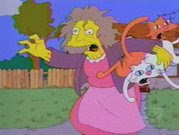It was in this part of Sparky’s life that he found religion. A twenty year old Sparky experienced a change in himself when he was baptized. According to Michealis,
“His baptism imparted a new sense of wholeness. His work improved; he was conscious of a purpose and, as never before, of a sense of identity. For the first time since his mother’s death, his days were suffused with meaning. Here was the real start of the new life toward which he had been struggling since his return from war. Why hadn’t he seen it before?” (193).
Sparky had never fully gotten over his mother’s death, but his new found faith helped him to get over her. I find this very interesting; it seems that all his trouble just went away after his baptism. It may have just been a mental thing in that he needed to get these burdens off his shoulders and then finally found some real meaning in his life to let loose those feelings of anguish. He probably found it very satisfying that he always had someone to talk to for once because his dad was constantly working and didn’t have any steady girlfriends in his life. Religion may have helped him finally get over Dena’s death, but his self confidence issues would need much more than the church to fix.
Sparky struggled for love in his early twenties. He always wanted to be liked and appreciated. According to the author, “Sparky still wanted to be as well liked as his father had been among his many constituent customers, and he set this wish among his highest ambitions…Behind it stood the question of his life: Will I be–was I ever–truly loved?” (Michealis 198). That would be a terrible question to have to ask ones self. How did a man so tormented make such great comics? Well I think there are two parts to the answer. Throughout his whole life and especially near his mother’s death, Sparky had worked tirelessly to prove himself to her and everyone else. I think his constant need to be liked made him work even harder to make it big. It also helped shape one of times most endearing characters, Charlie Brown. Also this book has so far just pointed out most of the negative parts in his life. I’m sure he had a lot of good times in his early years as well.
Michaelis, David. Schulz and Peanuts: A Biography. New York: HarperCollins Publishers, 2007.
Subscribe to:
Post Comments (Atom)

2 comments:
I really like this post because we finally see what solved some of his main issues. I think that his comics are so great because I see a person, in Charlie Brown, who is worse off than I am, so I can see his troubles from a "comic" stand point, instead of in a sad light. Great job.
Very diplomatic! "I’m sure he had a lot of good times in his early years as well." and the use of words such as 'interesting' and 'probably'. Did you know Minnesotans tend to use the word 'interesting' as expressing passive-aggressive ness and usually mean that the subject is idiotic? :) (from the Star Tribune) Nevertheless, back to the post... I like how you express skeptism over religion suddenly curing all of Sparky's problems, and the emotion you express in feeling Sparky's anguish in the search for love. "That would be a terrible question to have to ask ones self. How did a man so tormented make such great comics?" is very powerful-- and you answer your own question with Sparkky's original goal, to be accepted and popular, leaving the reader with a sense of togetherness and feeling fulfilled. Nice job!
Post a Comment